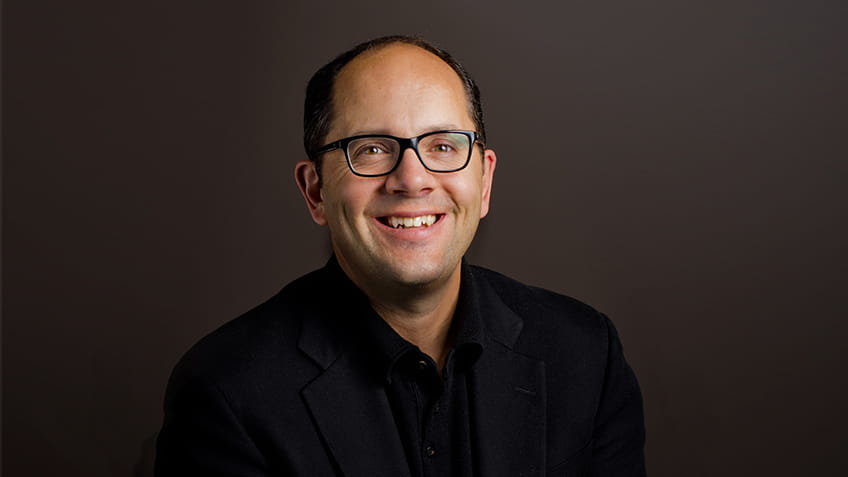Paul Earle '99

Paul Earle '99
Founder, River West Brands and Farmhouse
Forget the proverbial garage. Paul Earle '99 only needed a janitor’s closet to launch his first startup.
Earle was still a high-school student at Noble & Greenough School in Dedham, Mass., when — frustrated by the editorial bent and business approach of the 100-plus-year-old incumbent newspaper — he convinced administrators to let him to start an independent alternative from inside a 10-by-5-foot closet on the school’s property. There, under the glimmer of a single light bulb dangling from the ceiling, Earle and his two co-founders dug into investigative pieces and plotted strategies to raise funds for the paper, working without air-conditioning or financial support from the school. Not only did the paper succeed in earning the respect of teachers, students, and local advertisers, it caught the attention of the Governor of Massachusetts, who publicly recognized Earle and the team for their entrepreneurship; later, the Columbia School of Journalism honored the paper with a prestigious award for excellence.
The ability to create something from nothing is a recurring theme in Earle’s career, which has been punctuated by successes as both an entrepreneur and intrapreneur. In 2001, at age 30, Earle left a coveted brand-management job at Kraft Foods to start River West Brands, a company that acquired and redeveloped distressed brand properties. Eight years later, he built a creative works development company under his own name. And in 2011, he transitioned to the world of corporate innovation with the launch of Farmhouse, an innovation and new venture center housed within the advertising behemoth Leo Burnett.
That track record of innovation begs the question: How does Earle know when he’s found a venture worth pursuing?
“I’m someone who goes on gut,” he says. “I’m not someone who needs a ton of data to know whether to pick the green one or the blue one. If you really feel something in your innards — if you get goose bumps or a surge of emotion — that’s an indicator that it’s the right thing to do.”
Earle also has a keen eye for spotting business trends that present startup opportunities. He came up with the idea for River West Brands after noticing how valuable brands were “falling through the cracks” in the aftermath of mergers between conglomerates such as Nabisco and Kraft, or Pepsico and Quaker. These brands, which included Salon Selectives, Brim coffee and Eagle snacks, “went away through no fault of their own,” he says. “They were just in the wrong place at the wrong time.”
Earle and the team’s strategy was to buy the intellectual property of dormant brands, update them (e.g., by fixing the brand strategy, visual identity, packaging or product), and then sell, spin or license them to another company. It was a revolutionary model that turned a great profit, and led to the sale of a large portion of the company to Omnicom Group (NYSE: OMC).
Earle eventually translated a lot of the learning from River West into Farmhouse, a corporate-innovation engine born out of the observation that advertising agencies wanted to develop products and services that could complement their core marketing communications. Housed within Leo Burnett, Farmhouse successfully developed new products and services for clients such as Procter & Gamble, Pfizer, Allstate and McDonald’s. It also helped create Publicis90, an innovation platform housed within Leo Burnett’s holding company that invited employees and external enterprises to submit startup ideas and apply for funding. Farmhouse also worked with the Kellogg Innovation Network to redesign its identity system and develop an innovative app that helped KIN members identify and codify social problems to solve.
Since moving on from Farmhouse in April 2016, Earle founded Paul Earle & Co., a new, modern innovation consultancy and venture platform that helps leading corporations convert Mind Into Matter. He has also has been focused on hunting for his next big adventure while co-teaching Corporate Innovation & New Ventures (ENTR-903) at Kellogg. The role of adjunct faculty member comes naturally to Earle, but it carries a twist of irony: Decades ago, when Earle first applied to Kellogg, he was rejected; the second time, he was waitlisted. “So I sent Kellogg samples of interesting work I was doing,” he says. “I wrote a fictional article about me as a Kellogg alum in the future. I kept after it. I’m sure they were thinking, ‘What’s with this guy?’”
His perseverance paid off, as Kellogg finally presented him with an admissions offer in 1997. Earle immediately reached out to Michele Rogers, the then-assistant dean of Admissions. “I told Michele, ‘Words cannot express how excited I am that I got in,” he recalls. “‘I’m going to do great things. I’m going to make this a great decision for you and the school.’”
As both an entrepreneur and corporate innovator, Earle has already fulfilled that promise. And he’s just getting started.Take Action
- Apply Now
- Request Information
- Campus Tour
- Attend an Event
